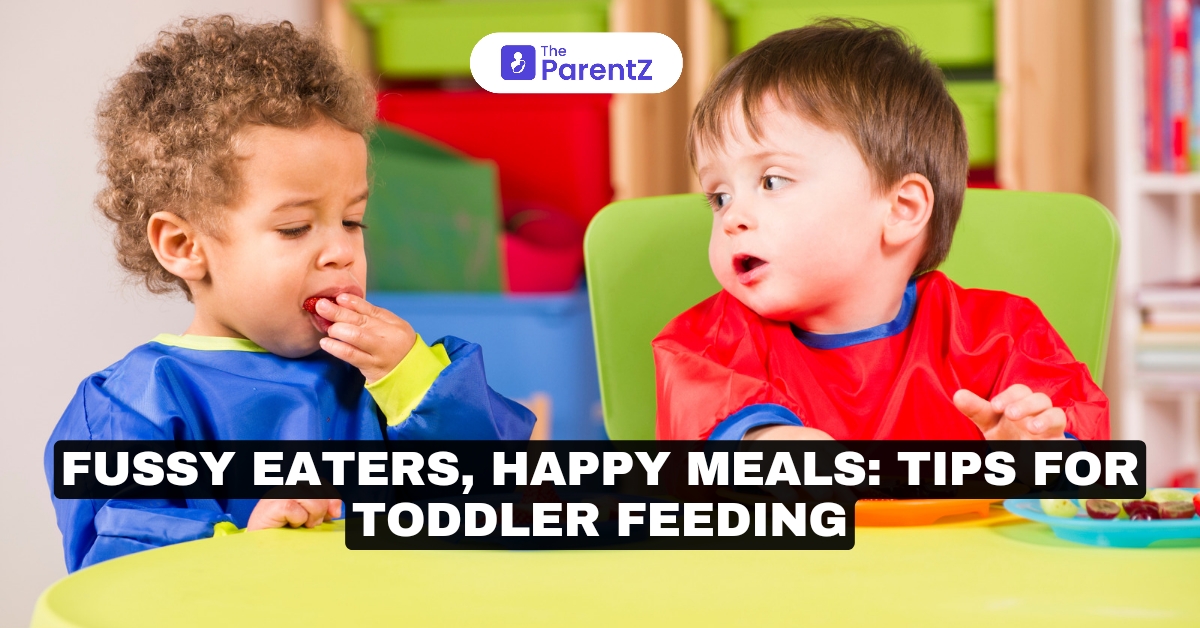Navigating ‘toddler feeding’ can often feel like a daunting task for parents. The scene is all too familiar: a parent, hopeful and prepared, sets a colorful plate of healthy food before their little one, only to be met with a scrunched nose, a turned head, and a resounding "no." This moment can quickly escalate into a battle of wills, leaving both parent and child feeling overwhelmed and frustrated.
The struggle to encourage healthy eating habits in toddlers is a common challenge, but it doesn't have to be a source of stress. With some understanding and practical strategies, mealtime can transform from a battleground into a joyful experience for everyone involved.
Understanding the Toddler Mindset
Toddlers are in a phase of rapid development, both physically and emotionally. They are learning about autonomy and control, and food is one of the first areas where they can assert their independence. This newfound power often manifests as pickiness or refusal to eat. Parents need to recognize that a toddler's rejection of previously enjoyed foods is not a personal insult. Understanding this can help parents remain calm and flexible during mealtime, which is crucial for creating a positive environment.
Practical Strategies for Encouraging Healthy Toddler Feeding
Create a Positive Mealtime Atmosphere
The conditions in which meals are served play a huge role in a child's willingness to eat. Aim for a calm and pleasant atmosphere during mealtimes. Avoid distractions such as television or toys and instead focus on family interaction. This encourages children to eat and helps them associate mealtime with positive experiences.
Offer Choices
Empower your toddler by giving them choices within healthy options. For instance, instead of asking if they want broccoli, present two choices: "Would you like broccoli or carrots with your chicken?" This approach allows toddlers to feel in control while still guiding them toward nutritious options.
Reintroduce Foods
Toddlers can be notoriously fickle about their food preferences. If they reject food, don't give up immediately. Research suggests that children may need to be offered a new food ten or more times before they accept it. Keep serving small portions of the food alongside their favorites, and encourage them to try just one bite without pressure.
Encourage Self-Feeding
Allowing toddlers to feed themselves can significantly enhance their interest in food. Provide finger foods that are easy to manage, and let them use utensils when they are ready. This not only fosters independence but also makes mealtime more enjoyable for them. Remember to celebrate the messiness that comes with self-feeding; it's a part of the learning process.
Implement Structured Meal Times
Setting regular meal and snack times can help regulate your toddler's appetite. Grazing throughout the day can diminish their hunger at mealtimes, leading to further food refusal. Aim for three meals and two snacks at consistent intervals, and avoid offering food or drinks outside these times, except for water.
Use Creative Presentation
Toddlers are often attracted to colorful and fun presentations. Try arranging food in fun shapes or using dips for vegetables. Engaging them in the preparation process, such as letting them help wash vegetables or set the table, can also spark their interest in the food being served.
Be Patient and Stay Calm
It's essential to maintain a neutral attitude towards food refusals. If a toddler pushes their plate away or refuses to eat, try not to react with frustration. Instead, calmly remove the food and offer it again at the next meal. This teaches them that mealtime is a consistent part of their routine, and they will eventually come around to trying new foods.
Toddler Feeding: Building a Healthy Relationship with Food
Ultimately, the goal is to help children develop a positive relationship with food. Mealtimes should not be a source of anxiety but rather an opportunity for connection and enjoyment. Celebrate small wins, like trying a new food or finishing a meal, and focus on the experience rather than the quantity consumed.
Conclusion
Encouraging healthy eating habits in toddlers is a journey that requires patience, creativity, and understanding. By implementing these strategies, parents can help their children navigate their food preferences while fostering a love for nutritious meals. Remember, you are not alone in this struggle; many parents face similar challenges. With time and persistence, mealtimes can become a cherished part of the day for both parents and toddlers alike.





Be the first one to comment on this story.